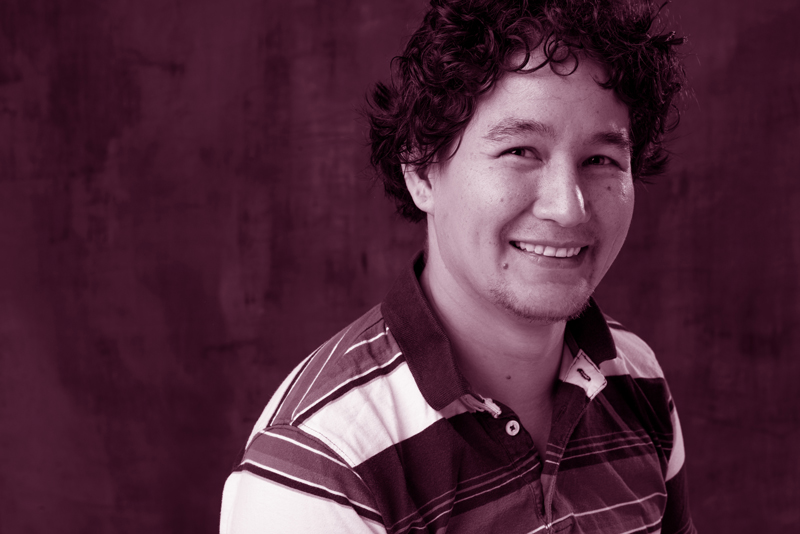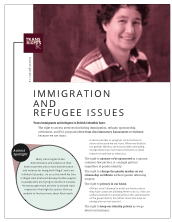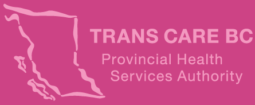Update: For information regarding the addition of Gender Identity and Expression to the 2016 BC Human Rights Code, and to the 2017 Canadian Human Rights Act, please visit the Explicit Protection page.

Trans immigrants and refugees in British Columbia have:
- The right to access services (including immigration, refugee, sponsorship, settlement, and ESL programs) free from discriminatory harassment or violence because we are trans.
- A service worker or program cannot refuse to serve us because we are trans.
- When we disclose our gender identity, service providers (including interpreters) must not make comments or jokes meant to humiliate or offend us.
- The right to sponsor or be sponsored as a spouse, common-law partner, or conjugal partner regardless of gender identity.
- The right to live free from harassment. This means people cannot cause a general disturbance by yelling or swearing at us while we are out in public. People cannot threaten to kill or hurt us. People cannot touch us to try to confirm our sex or gender. People cannot follow us, spy on us, or harass us by phone or email to the point where it is reasonable to fear for our personal safety or the safety of someone we love. For more information, see the Harassment and Violence section of this website.
- The right to live free from violence. This means people cannot beat us up or cause us any kind of physical harm. This includes the right to live free from sexual assault and abuse from a partner. For more information, see the Harassment and Violence section of this website.
- The right to change the gender marker on our citizenship certificate without gender affirming surgery.
- We must submit provincially or territorially-issued documentation that reflects our gender identity.
- We can get a free BC Services card that reflects our gender identity.
- Changing our name and/or gender marker will not affect our immigration status in Canada as long as we have documents to prove our identity.
- The right to equal housing access. A housing provider cannot refuse to rent to us – or evict us – because we are trans, because we ‘don’t look like’ a man or a woman, or because our ID doesn’t match our gender identity. They also cannot refuse housing based on factors such as race, colour, ancestry, place of origin, or religion. See the Housing section of this website for more information.
- The right to equal access to employment. This means an employer cannot refuse to hire us because we are trans. They also cannot refuse to hire us based on factors such as race, colour, ancestry, place of origin, religion, disability, or sexual orientation (unless there is a legitimate reason related to performing the job). See the Employment section of this website for more information.
- The right to privacy in our home.
- Officers aren’t allowed to enter our home unless they have a warrant allowing them to do so.
- If we are undocumented (for example, our visa has expired, our refugee claim was denied, or we were given a deadline to leave Canada and didn’t), the officer must also have an immigration arrest warrant.
- For information about how to handle an officer showing up at your door, read Migrants Know Your Rights.
- The right to keep our identity private as we go about our business.
- A Canada Border Service Agency (CBSA) officer cannot randomly stop us on the street and ask for identification without having some grounds to believe we have committed an immigration offence. (They can stop us if we are driving a car or a bike).
- Even though we have a right to silence, we may choose to identify ourselves with our name, address, and date of birth because officers can arrest someone without immigration status if they don’t believe we have identified ourselves correctly.
- See Migrants Know Your Rights. for more information.
- The right to protection from search and seizure. This means unless we are detained or arrested, we do not have to let police or Canada Border Service Agency (CBSA) officers search our body or possessions (including our car).
- An exception to this rule exists when crossing the border into Canada. All people and goods entering Canada are allowed to be examined by CBSA officers. In this case, they have the right to search and seize our personal belongings without a warrant. This includes electronic devices such as laptops and cell phones. Outside of a port of entry, CBSA officers have no more authority to search and seize than a police officer and generally must either get a warrant or have our consent.
- If we are put in a prison, the legal right to be placed according to our gender identity depends on whether we are placed in a provincial prison, federal prison, or other detention center. See the Police & Prison section of this website for detailed information. Generally, you will be placed in sex-segregated facilities based on your genitals. This is discriminatory, but until this policy is contested under human rights law it will continue to happen. If you are placed in a prison that is not the same as your felt gender and is against your wishes, you can call Prisoners’ Legal Services for help. (If you are in a provincial prison, call 604-636-0464. If you are in a federal prison, call 1-866-577-5245.)
Although trans people have these rights, it can be very difficult to stand up for our rights if we are undocumented.
If you are at risk of being detained or deported, develop a safety plan so that you know what you would do if an immigration officer stops you or comes to your home. No One Is Illegal’s Migrants Know Your Rights can help you make a plan. (link)
Applying for Refugee Status
- You can apply for refugee status in Canada if you can prove that you have a ‘well-founded fear of persecution’ in your home country. Persecution is defined as a serious human rights abuse.
- Persecution is different than discrimination. For example, being refused a job once in your home country because you are a trans person will probably be considered discrimination, not persecution. You would be denied refugee status. But if you are constantly refused jobs because you are a trans person, and are unable to work in the job you are qualified for, this violates your fundamental human right to a livelihood. This could be considered persecution. If you faced police harassment or violence that the police refused to act on because you are trans, that is persecution. In some cases, not being able to legally change your gender in your home country has been determined to be persecution.
- There is no official list of countries that Canada uses to assess refugee claims based on trans-related persecution. Each refugee case is individually assessed. Canada does have a list of Designated Countries of Origin (DCO) (link to ) where people are considered unlikely to be persecuted. If you claim from one of these countries, there are more barriers (such as shorter timelines to go to a hearing and no right of appeal to the Refugee Appeal Division). But you are still entitled to the same individualized assessment of your claim at a hearing in the Refugee Protection Division. Many trans claimants are accepted from DCOs such as Mexico and South Korea because of how trans people are treated there.
- If you cannot make a case that you face persecution in your home country, another way to get permanent residence in Canada may be to file an application for permanent residence on humanitarian and compassionate grounds (H&C).
- You must be able to show that you would face ‘unusual and undeserved or disproportionate hardship’ if you were to leave Canada, or have other strongly compelling reasons that justify you being allowed to stay in Canada permanently.
- Unlike a refugee claim, H&C does not require you to prove a well-founded fear of persecution in your home country.
- If you filed an unsuccessful refugee claim, you must wait at least 12 months after the date of their refusal before you can file an H&C application. You can get an exception from the 12 month requirement if you can prove that:
- Your life would be at risk if you were removed from Canada because your home country is unable to provide adequate medical or health care; or
- Your removal would have a very negative effect on the best interests of a child under 18 years of age who is directly affected.
It can be hard to apply for H&C after your refugee claim has been denied because most failed refugee claimants are removed from Canada long before a year has passed. But if you already have temporary status in Canada and are able to financially support yourself until an H&C application is approved, an H&C application may be a reasonable option.
A person cannot have a refugee claim and an H&C application in process at the same time.
Anyone thinking about making an H&C application should get legal advice about the strength of their application. Legal aid is available for refugee claims, and in limited circumstances may be available for H&C. See the Resources section.
Accessing Gender-Affirming Healthcare as a Refugee
- People whose refugee claims have been accepted and people whose refugee claims are in process can get healthcare coverage for hormone readiness assessments, hormone therapy, and limited counselling.
- Only people whose refugee claims have been accepted can get coverage for gender-affirming chest, breast, and genital surgeries.
- Access to trans health services is mostly limited to the Lower Mainland, though this is slowly changing. For people who live in Vancouver, trans health services are usually provided through Bridge Refugee Clinic, Three Bridges Community Health Centre , and Ravensong Community Health Centre .
Who can I go to for help?
- For free help filing a refugee claim, you can call the Legal Aid Immigration Line at 604-601-6076 in Greater Vancouver or 1-888-601-6076 elsewhere in BC. Interpreters are available. They may be able to appoint a lawyer to help you fill out forms and prepare for your hearing. The lawyer may also be able to represent you at your hearing.
- This is a list of lawyers who practice refugee law. Some specialize in gender identity issues.
- The Rainbow Refugee Committee is a support group for LGBTQ refugee claimants. They meet twice a month and can help you understand the refugee process.
- No One Is Illegal advocates for systemic changes for migrant justice.
- For referral to victim support services, call VictimLink BC at 1-800-563-0808. The line is staffed by victim services workers who can refer you to the appropriate resources and let you know if there are any benefits available to you under the Crime Victim Assistance Program.
- For help filing a human rights complaint, contact the BC Human Rights Tribunal. The Tribunal also has an advocacy program. They may also be able to help you file a human rights complaint or represent you. However, there are rules about what cases the Tribunal takes on. Contact the BC Human Rights Tribunal at 604-775-2000 in the Lower Mainland or 1-888-440-8844 in the rest of BC.
- If you are in a provincial prison and need free legal advice related to your treatment in prison, you can call Prisoners’ Legal Services at 604-636-0464.
- If you are in a federal prison and need free legal advice related to your treatment in prison, you can call Prisoners’ Legal Services at 1-866-577-5245.
- For a free legal assessment of your situation, contact The Catherine White Holman Wellness Centre . Email lawyer@cwhwc.com to book an appointment. CWHWC has a legal clinic for trans and gender diverse people twice a month. There is a waitlist. Clinic lawyers are not able to represent you, but they can give you a list of lawyers who specialize in human rights complaints. If you cannot travel to the Catherine White Holman Wellness Centre, you may be able to set up an appointment by Skype. Another organization called Access Pro Bono has over 75 legal advice clinics throughout the province. Not all Access Pro Bono lawyers will be familiar with trans legal issues. For more information about Access Pro Bono and the programs it offers, or to find a legal advice clinic in your area, go to: accessprobono.caor call: 1-877-762-6664.
Resources:
Questions & Answers. By Legit: Canadian Immigration for Same Sex Partners.
LGBT Issues in Canada’s Immigration and Refugee System. By EGALE Canada.
Know your Rights by No One is Illegal. This guide is available in English, French, and Spanish.
The Refugee Hearing Preparation Guide. By Kinbrace Community Society
Sponsoring Your Partner to Immigrate to Canada: An Out/Law Legal Guide. By barbara findlay, Q.C.
The Canadian Red Cross provides independent monitoring of federal detention facilities holding immigration detainees.
The Sylvia Rivera Law Project’s Flow Chart about the Disproportionate Deportation of Trans People.
The Refugee Hub serves as a resource centre, providing access to the latest publications and relevant statistics on all refugee categories throughout the entirety of B.C.




